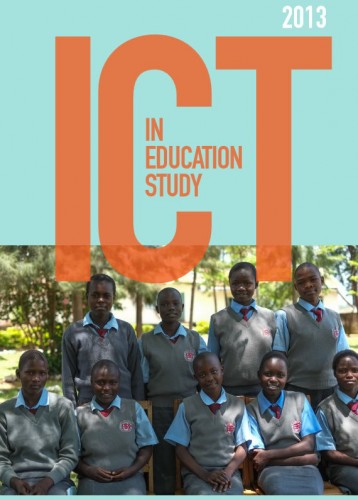Lack of electricity, internet access, tools, and training hinder rural ICT in education efforts
A year-long study at four Ericsson Connect To Learn schools in rural Kenya and Uganda confirms many known challenges faced by remote schools. Problematic are a lack of stable electricity, a lack of internet service, a lack of ICT tools, and a lack of ICT training.
The Connect To Learn program was founded on the vision of a world where all girls and boys have access to secondary schooling and all teachers and students are connected to quality learning resources through internet access. CTL aims to identify how the quality of education could be bolstered by the use of ICT for teaching and learning even in the most remote, resource-poor parts of the world. Three years later, Connect To Learn supports 745 students with multi-year secondary school scholarships across 12 sites in 10 Sub-Saharan African countries. Computer and broadband connectivity have been installed in most schools with the help of partners.
After a year of interviews, training workshops, surveys, and observations, teachers felt much more confident in using ICT for educational purposes. In fact, 21% of teachers considered themselves to be “advanced” users of ICT at the beginning of the project; by the end, 45% of teachers were reporting themselves to be advanced users. Researchers indicate significant improvements in teaching and learning when ICT tools and resources are well-designed (with the school infrastructure and environment in mind). This confidence also is born from professional development in how to optimize these ICT resources in teachers’ classrooms.
Even when teachers have sufficient ICT skills, the absence of physical and ICT infrastructure still limits students’ interactions with e-learning:
- In a 5-day school week, none of the four schools averaged more than 4.5 days with power (most averaged three days with power/two without).
- Computer security is an issue but it takes 20-30 minutes to move computers from storage and have teachers set them up.
- Post-survey, 39% of teachers still consider some teachers to have more access to the computers.
- Each school in the program has 25 netbook computers and anywhere from 2-25 desktops with an average class size of 40-60.
- Page load time soars when four or five individuals are using the internet simultaneously.
- WiFi access was often only available in the classrooms immediately bordering the ICT labs.
- Post-survey, 51% of teachers reported a lack of reliable internet access as the biggest barrier to ICT usage.
- An ideal data package per school was determined to be 1 GB per computer per month (ie. 25 GB per month for a school with 25 computers, or roughly 300 USD in Kenya).
The findings and recommendations included within this report be used as a springboard for future interventions. Recommendations, if followed, will give students the opportunities they deserve for achieving their dreams. A basic roadmap for the integration of these recommendations looks something as follows:
- Physical infrastructure: develop school policies for access to computers, equip all classrooms with electrical outlets and security
- ICT infrastructure: provide computers in phases, provide WiFi networks such that every classroom is connected, provide adequate airtime to schools, hire school-based ICT teachers
- Teacher skills: engage teachers in professional development, observe classrooms to encourage integration of ICT
- Open source learning resources: lead teachers in locating of relevant online content
- Student participation: encourage teachers to assign online research assignments
- Public-private partnerships: hire local facilitators at each site, create partnerships with industry leaders and telecoms industry
Source: “2013 ICT in Education Study,” Earth Institute at Columbia University, Columbia University Teachers College, University of Nairobi, Kampala University, Ericsson, November 2013.













 Twitter
Twitter Facebook
Facebook Pinterest
Pinterest